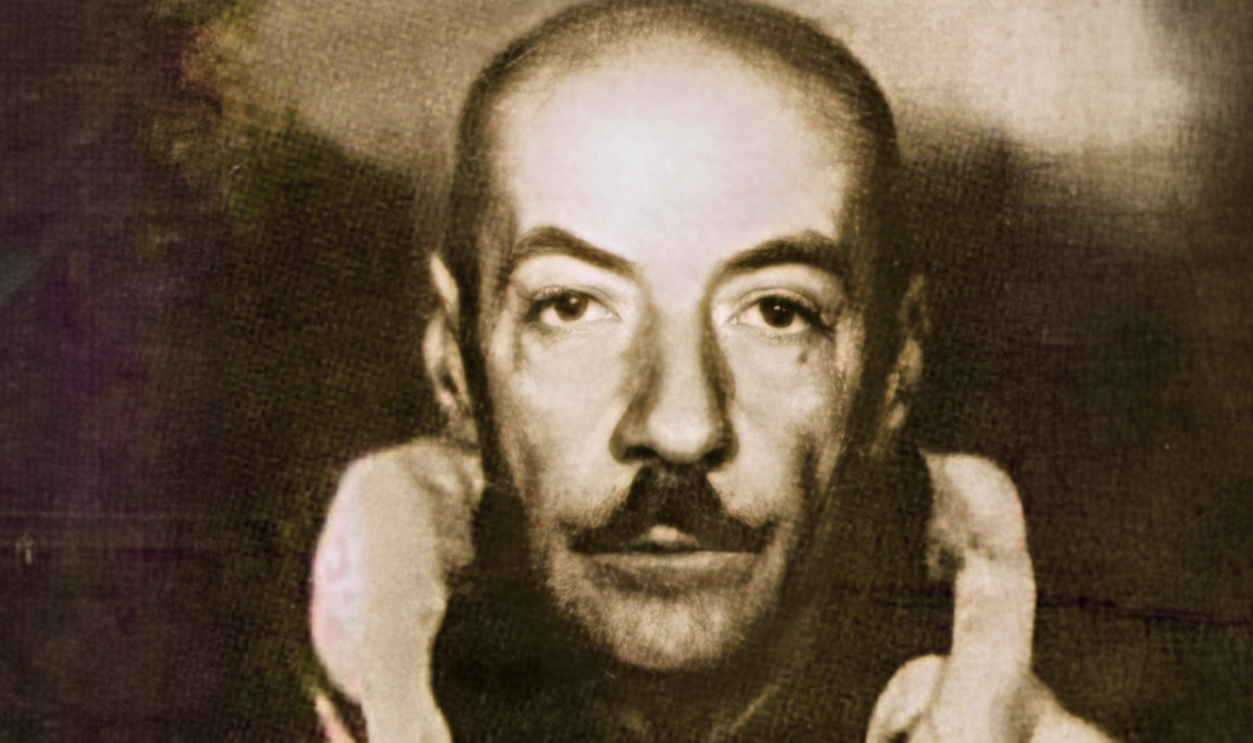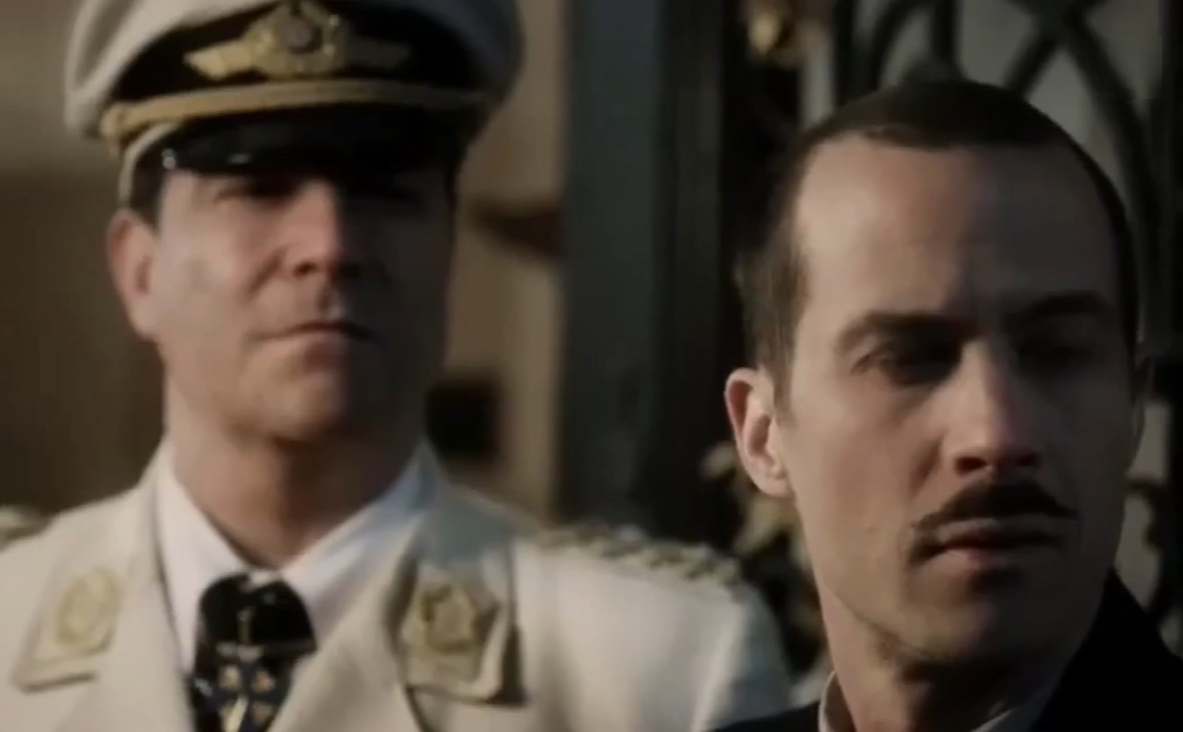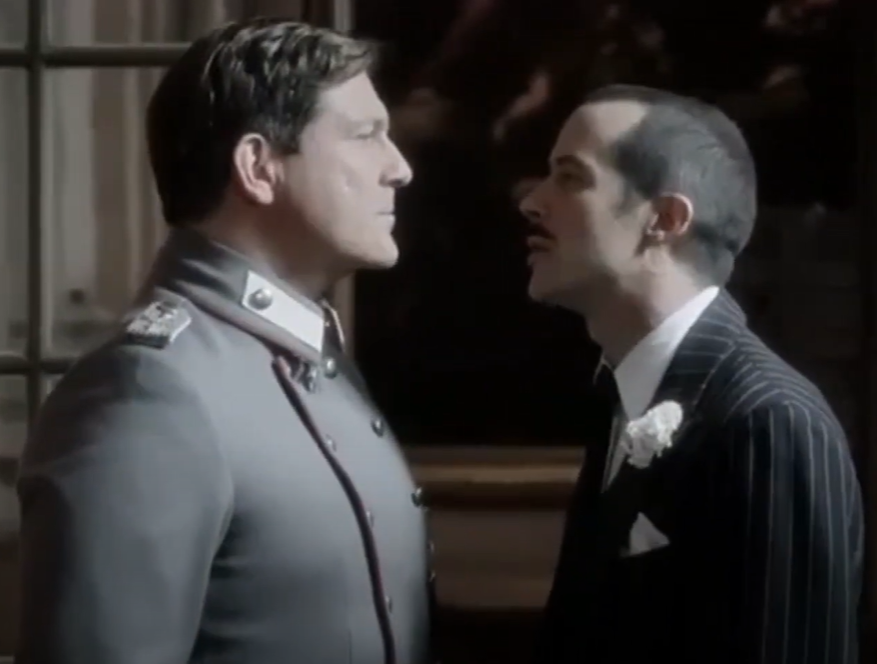A Rebel Worthy Of The Title
Few people know about one of history's greatest sibling rivalries: the intense conflict between Albert and Hermann Göring, the rebel and war criminal.
But to know why they were so different, we also have to learn who Albert was.

A Tale Of Two Brothers
The siblings were born two years apart, Hermann on January 12, 1893 and Albert on March 9, 1895. They shared a godfather of Jewish heritage, Hermann Epenstein Ritter, who was also a surrogate parent to them while their father was absent.

A Valley Between Them
From the start, the two brothers were incredibly different. Hermann liked typical boy activities like being outdoors and pretending at combat and conflict games.
Albert, on the other hand, liked being inside doing artistic pursuits.

An Intellectual And A Trouble-Maker
The brothers were equally as disparate in their behavior at school. Albert was an attentive and proper student who had an easy time following the school system.
Hermann was the opposite; He had a difficult time with classes and bounced between multiple institutions.
There Were No Illusions
Even Hermann noticed their diverse interests, stating, “He was always the antithesis of myself. He was not politically or militarily interested; I was. He was quiet, reclusive; I like crowds and company”.
This statement honestly understated how much they would later differ.
He Did His Due Diligence
Albert was 19 when WWI broke out. He became a communications engineer and joined the 6th Bavarian Reserve Division. Despite being the bookish child, he soon found himself on the front lines of the Western Front, in the trenches.
Unfortunately, he would quickly find himself suffering in these circumstances.
He Didn’t Get Out Unscathed
Göring endured an injury at the First Battle of Ypres in 1914, soon after the fighting broke out, but he continued through his pain.
A few years later in 1918, he was struck in the abdomen by a round. Unable to walk this one off, the injury brought his career as an officer to an abrupt end. But there were other ways that he could make his mark.
Released With Honors
The army discharged him in August of 1918, at which point he’d been promoted to the Communications Unit Leader of the 103rd Bavarian Division and was the winner of the 1st and 2nd class of Iron Cross.
Albert had earned quite a decorated record—but now he wanted to enjoy the fruits of his labor.
Returning To His Roots
For the first portion of his life after WWI, Albert was a filmmaker and a reputed “ladies’ man”. He married Marie von Ammon in 1921, and later Erna von Miltner in 1923.
All the while, he was studiously attending the Technical University of Munich for mechanical engineering.
His First Love
Albert and Erna married the same year that he graduated, and he landed a job at the Junkers’ Kaloriferwerk in 1925. Two years later, the couple moved to Vienna, where he acted as a representative for Junkers’.
But this was just the start of his remarkable work.
A Different Route
Meanwhile, Albert's brother Hermann was keeping himself very busy. He joined the National Socialists in 1922 after listening to Adolf Hitler perform a speech.
He quickly started to rise up through the ranks. He soon gained command of the Sturmabteilung, and a couple of years after that was appointed Gruppenführer of the group.
An Officer Of The Highest Degree
Hermann and his wife Carin often hosted dinners for the leaders of the German Nationalist Party. He was generally well-liked by Adolf, who admired Hermann’s organizational abilities—abilities he would want to put to use.
One Mistake Had Dire Consequences
Hermann Göring grew addicted to morphine after he was injured during the failed Beer Hall Putsch coup. He had to stay in a hospital for several weeks, after which he and his wife fled Germany for Italy.
This addiction would plague him until the end.
Taking The Country For Himself—And Deepening The Rift
Hermann and the National Socialists claimed power over Germany and its territories in 1933. It was another point of contention between the brothers, as Albert despised the National Socialists and everything they stood for. Especially the horrific methods they utilized.
His Life Turned Upside Down
Albert’s “unremarkable life” lasted until his brother's party took over Germany. Before that, he was making films, and he was happily married to Erna. His life couldn't have been more different than his brother's—but soon, they'd be on opposite sides of the same struggle.
Albert Needed To Make His Values Known
Just because Albert lived a quiet life doesn’t mean he didn’t engage with politics at the time. He hated what the Nationalists were doing and criticized them at every opportunity, including in the public sphere.
A First Introduction To Explicit Rebellion
In 1936, something surprising took Albert off guard. His brother, Hermann asked him to help one of the country's most famous actresses; Henny Porten had married a Jewish doctor, and the new regime tried to force her to divorce him. She refused—immediately putting her life at risk.
When she refused to divorce him, it became clear her and her husband’s lives were at risk.
The Start Of A Legacy
Hermann Göring was a big fan of the movies, and he loved Porten—so he called up his polar-opposite brother. Albert worked in Vienna at the time with the Tobis-Sascha Filmindustrie AG. He was able to arrange a contract for her to protect her from persecution.
And that wasn’t the only time Albert stuck his neck out for someone in need.
A Louder Outcry Of Displeasure
In 1938, Albert stood alongside his Jewish colleagues during the Anschluss, the annexation of Austria, and the fallout of the event. If he hadn’t already set himself apart as being anti-National Socialist, this was certainly an obvious sign of disobedience.
Taking A Risk
Albert also used his brother’s status to save fellow filmmaker Oskar Pilzer, a Jewish man, after he was apprehended by German officers. Then, he aided the Pilzer family in escaping Germany.
And Oskar wasn’t the only person the former filmmaker helped to flee from persecution.
Misusing His Brother’s Reputation
By then, Albert had figured out that he could use his status as Hermann Göring’s brother to get away with his anti-Nationalist endeavors. If he was seized, he could either get out because of their shared last name, or through Hermann’s involvement. He used this relentlessly.
Solidarity In Any Available Context
Albert worked alongside a group of Jewish women as they washed the streets. A Schutzstaffel officer checked his ID, and realizing he’d be to blame if Hermann’s brother was caught, he stopped the humiliating punishment.
Finding Another Road To Subterfuge
Another person Albert helped was the composer Franz Lehár, who was threatened by German authorities. Franz’s wife was Jewish, but he helped them acquire false proof of her non-Jewish status. Later, Franz wrote and dedicated a composition to their savior.
Taking On A New Role
When the activity of the Reich increased, Albert became the director of export at Škoda Works in the Protectorate of Bohemia and Moravia, the occupied areas of former Czechoslovakia.
There, he used his position to incite even more chaos and rebellion.
Protecting Those Who Rebelled
Göring's acts of rebellion began with sabotage, and he encouraged his staff to do the same. The Nazis stored explosives at his Škoda warehouse, but according to reports, at least one of the devices out of Škoda had the explosives entirely removed, replaced with harmless sand.
When Albert Göring found a way to stick it to his brother's party, he took it.
Using His Position To His—And Others’—Advantage
Albert’s position was a prime opportunity. With the company he worked for being based internationally, he was able to remain in contact with the Czech resistance. He would also forge his brother's signature on official documents to help people get across the border.
But as the years wore on, his actions just became more and more extreme.
Taking Direct Action
On more than one occasion, Albert initiated a dangerous scheme. He sent a truck to concentration camps, demanding they deliver laborers to his Škoda factory. Normally, such a request would be denied—but who was going to say no to the brother of Hermann Göring?
A Truck That Never Completed Its Journey As Intended
Albert's men would load prisoners into their truck and start back to the factory. Each time, however, they made an unscheduled stop in a concealed area, and the prisoners managed to "escape" before even getting to their work assignment.
Face-To-Face With The Enemy
Albert also used his influence in a confrontational way. He would demand his brother let go of or be kinder to Jewish prisoners and other rebels. And believe it or not, Hermann actually acquiesced to many of the requests. Whether it was because of a kindness in his heart, or a strategic choice, was up for debate.
Making A Grab For More
Hermann’s power permitted him to make a lot of choices without being questioned. But the reason for going along with his brother's requests was likely a power play. He was in dangerous competition with fellow officers and was certainly trying to vie for more power.
Under A Keen Eye Of Observation
In the later years of WWII, the Nationalist regime kept Albert under constant surveillance. Everything he did was under scrutiny, including his third marriage to Mila Klazarova, a former Czech beauty queen. By 1944, he had become a target for all sides of the conflict.
Turning To His Only Hope
An arrest warrant went out for Albert, but after evading capture once, he found himself facing his brother in Berlin. Despite having multiple charges against him, he wasn’t convicted. But he wouldn’t escape every accusation thrown his way.
Unable To Sever The Connection Of Blood
But even though Albert was active in his rebellion, his association with his brother still condemned him in the eyes of the international community. After WWII was over, he was seized and taken to Nuremberg.
Further Evidence Of His Disdain For The Reich
When Albert was interrogated at the Nuremberg Trials in 1945, he recounted an incident where he attempted to liberate a Jewish woman in Vienna. She was harassed and humiliated by a group of Sturmabteilung officers. He physically assailed them and was promptly apprehended.
Revealing The True Nature Of His Endeavors
Albert continued to shock everyone at the trials by delivering a list of 34 people he claimed he helped flee Germany. Many important names stuck out to the interrogators, like the former Chancellor of Austria and Archduke Joseph Ferdinand of the Habsburgs.
His Brother’s Actions Continue To Influence Albert’s Reputation
The Allies didn’t believe him, but then, two unexpected facts came to light. First, a letter from Kurt Pilzer, whose family Albert had helped escape to the US, arrived to aid his case.
But that was the less surprising turn of events to aid the former filmmaker.
Another Trial-Changing Reveal
The nephew of Franz Lehár was appointed as interrogator on Albert’s case. Franz and his wife were 15th on the provided list of names, and the interrogator had heard the story of Albert’s exploits. Eventually, he was exonerated and released. His brother wasn’t so lucky.
Disbelief At The True Extent Of The Terrors
Hermann Göring’s trial didn’t go as his brother's did. Reportedly, Hermann was shocked at the realities of the conflict and what the Jewish people endured at the hands of his party.
He stood by his allegiance to Adolf, but feigned innocence about the depths of the horrors.
The Consequences Of Decades On The Wrong Side
In the end, the two brothers both faced unpleasant ends. Hermann was convicted, found guilty on all charges and sentenced to execution. He was sentenced to be hanged, despite his request to be shot as an officer. The night before, he consumed a cyanide capsule.
Disappearing Into Obscurity
Albert wasn’t so lucky. Even though he was freed, the rest of his life was still plagued by his brother’s reputation. He passed in poverty of pancreatic cancer, his final act being to marry a woman named Brunhilde so she could keep his pension after he was gone. But his life was carried on by those he saved.
You May Also Like: